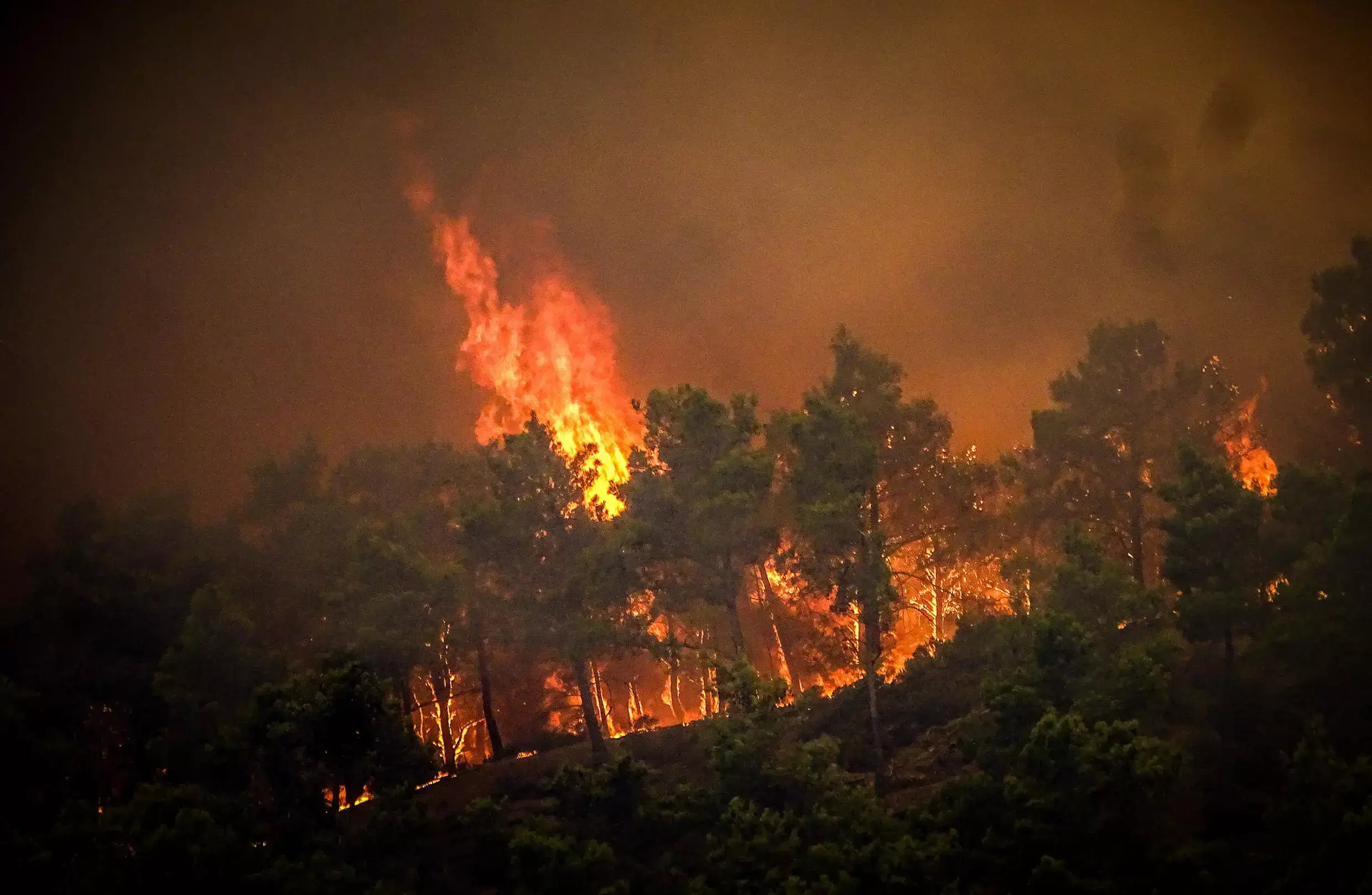
Greek fire crews on Thursday scrambled to put out wildfires raging for two weeks around the country that left five dead before strong winds forecast for the day rekindle blazes.
Hundreds of firefighters backed by European Union reinforcements were struggling to contain the flames on the islands of Rhodes, Corfu and Evia, in addition to a new front that erupted Wednesday in central Greece.
Early Thursday, another fire broke out near homes in the leafy Athens suburb of Kifissia but was swiftly extinguished.
Officials have said more than 600 wildfires have broken out around the country since July 13.
The civil protection ministry has warned of an extreme danger of fire in over a dozen Greek regions on Thursday.
Tens of thousands of residents and tourists at the height of the busy travel season have been evacuated, including 20,000 people on Rhodes.
A dangerous fire broke out Wednesday near the industrial zone of the central city of Volos, leaving two dead.
An elderly disabled woman was found dead inside her burned camper van in a coastal area near Volos and a cattle farmer was killed while trying to rescue his livestock.
The industrial zone was closed Thursday as a precaution. Six communities and villages around the city of nearly 140,000 people were evacuated early in the morning, with more placed on standby.
Temperatures are expected to drop Thursday after a prolonged heatwave but near-gale winds may complicate efforts to douse the fires.
Prime Minister Kyriakos Mitsotakis on Wednesday told the cabinet that the coming days will be "difficult as the heatwave will be followed by strong winds."
"We are living through dangerous summer days, as are nine other Mediterranean countries," civil protection minister Vassilis Kikilias said in a televised address Wednesday.
"Very high temperatures of over 40 degrees Celsius (104 Fahrenheit) and intense winds have created fire fronts of many kilometres," Kikilias said, adding that crews were battling through "inconceivable fatigue."
Scientists from the World Weather Attribution group said this week the heatwaves that have hit parts of Europe and North America this month would have been almost impossible without human-caused climate change.
The EU crisis management commissioner's office on Wednesday said over 490 firefighters and seven planes had been deployed to different areas in Greece under the bloc's civil protection mechanism.